At Independent Futures, our mission is to help craft a world where every individual has access to all opportunities of a full life. Our mission is to support people with disabilities, but we must condemn racism in all its forms. We are committed to expanding access to our supports and programs as much as we possibly can.
Rather than release a statement talking about what we have done as an organization, we want to highlight the voices of our staff. At least ¾ of our staff have attended the Beyond Diversity workshops sponsored by Evanston Cradle to Career, and those staff members created a DEI working group that finds new ways to expand access to our programs. Our staff members are conscious of how the personal is political, so we asked them to share how race affects their life and work. These are their responses:
Ann Sickon, Executive Director
 I believe that societal change only comes when each person recognizes they have a role to play in making needed changes in our reality. Policies, regulations, and federal and state laws, though perhaps well intentioned, can be subverted and destructive when our citizens do not demand equal protection under the law for everyone.
I believe that societal change only comes when each person recognizes they have a role to play in making needed changes in our reality. Policies, regulations, and federal and state laws, though perhaps well intentioned, can be subverted and destructive when our citizens do not demand equal protection under the law for everyone.
Still, these demands alone are not enough. We must expand our awareness of current policies and rules, and then we must root out discriminatory racial practices. We each have the responsibility to identify ways to create fair and equitable employment opportunities and opportunities for every voice and persuasion to be heard. Everyone must have the opportunity to live their fullest life.
Kathy Lyons, Director of New Futures Initiative Training & Consultation
 I believe that there are no spectators in the fight against racism. Either we are actively working to dismantle racism, or we are perpetuating it. In our work, we can make systemic change – eradicating racism in our educational institutions, health care systems, economic systems, housing systems, and justice system. Taking action means:
I believe that there are no spectators in the fight against racism. Either we are actively working to dismantle racism, or we are perpetuating it. In our work, we can make systemic change – eradicating racism in our educational institutions, health care systems, economic systems, housing systems, and justice system. Taking action means:
- Learning, listening, and leveling what has never been an even playing field
- Thinking about who’s at the table, in the room, and who never got into the building
- Sharing, or giving up, your seat at the table
- Filling the room with voices different from yours and then doing what those different voices demand
- Recognizing the contributions and sacrifices of those who actually built the buildings
- Seeing our common humanity and standing up when others do not
Rob Larson, Community Life Coordinator & Life Skills Tutor

I’m inspired to work at Independent Futures because it’s a visionary model where people with disabilities and their families have the opportunity to explore life in the context of dignity and community. Even visionary models need to face very real obstacles when building community and systemic racism is one of those.
I learned about Evanston’s history with systemic racism. I also learned that it was hard for some Evanston families to afford our services due to the lack of funding in Illinois and many of these families were people of color. I felt like we were missing out on the vibrant gifts of many Black, Asian and Hispanic families. I’m refreshed when I remember that we belong to one another. Independent Futures has created some free activities and a scholarship fund to remove some barriers. We still have a long way to go, but as other states have embrace funding community inclusion, why should Illinois families be robbed of that opportunity?
Regarding race, gender and sexual orientation, I’m a straight white male. By outward markers it is clear that I benefit from a confluence of power, especially white patriarchal privilege. I held some toxic views and didn’t even realize it. It’s been life giving to struggle toward love and liberation together, with all sorts of people from all walks of life. In the process, I made surprising friendships and was freed from the toxic views which were robbing me of joy.
I look forward to being with you and learning from you. I am eager to dismantle oppressive systems and create opportunities for families to thrive. I have faith that people will flourish wherever love is planted and justice is watered. I’m looking forward to walking in that garden with y’all.
Connor Larsen, Communications & Marketing Manager
 My relationship with race and social justice issues is constant and it is personal. At work and at home, I continue to educate myself on others’ experiences while participating in active & progressive citizenship. Some of the ways I practice active citizenship include:
My relationship with race and social justice issues is constant and it is personal. At work and at home, I continue to educate myself on others’ experiences while participating in active & progressive citizenship. Some of the ways I practice active citizenship include:
- signing petitions,
- contacting my government representatives,
- reading policy proposals,
- supporting candidates I believe in through donations and volunteering,
- voting in every election, even local primaries.
In each of these actions, I am using my power and often my privileges to move the people around me – and those who represent me – toward a more just and equitable future. In doing this work, I offer an open invitation to anyone who would like to learn more and join in!
Sharon Purdy, School & Agency Consultant
 My hope is that Independent Futures can someday provide equal opportunities for inclusion for all people with disabilities in Evanston. Unfortunately, Independent Futures’ supportive and effective programming is not affordable to many in our community.
My hope is that Independent Futures can someday provide equal opportunities for inclusion for all people with disabilities in Evanston. Unfortunately, Independent Futures’ supportive and effective programming is not affordable to many in our community.
Currently, many of the students and families whose transition planning we support through Evanston Township High School do not have access to person-centered programs such as ours upon graduation. I hope that we will continue to expand the after school activities that we have been able to provide through generous grants and professional commitment. I also hope we will continue to develop an environment where everyone can flourish.
Our participation in Courageous Conversations has opened important dialogue among our staff. I’m proud that we have been intentional about learning from each other. Let’s share these conversations with our whole community. I read this on a yard sign yesterday: I pledge to speak out against actions and systems of oppression that have an unjust racial impact. I also pledge to continue to learn from the young adults in our community with an open heart and action.
Amy Fox, Director of My Full Life Training & Consultation
 At a most basic level, if we assume that we all have a social responsibility to one another, then our job as a society is to help one another. We must honor our social contract to access this greater good and it may require surrendering something for the greater good.
At a most basic level, if we assume that we all have a social responsibility to one another, then our job as a society is to help one another. We must honor our social contract to access this greater good and it may require surrendering something for the greater good.
This implicit bias training came up in a news piece yesterday. It is broken out into a variety of categories on implicit bias including race, sexuality, and disability. It is our duty to know where our own biases are and work to consciously correct them.
Finally, this poem by Langston Hughes gives me pause for reflection on a dream deferred.
“Harlem” by Langston Hughes
What happens to a dream deferred?
Does it dry up
like a raisin in the sun?
Or fester like a sore—
And then run?
Does it stink like rotten meat?
Or crust and sugar over—
like a syrupy sweet?
Maybe it just sags
like a heavy load.
Or does it explode?



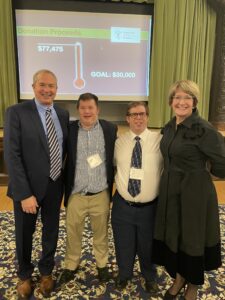

 According to Independent Futures Human Resources Coordinator Cathy Norris, “Unemployment fraud is when someone, other than you, uses your name and personal information to file an unemployment insurance claim. Then, that person tries to receive unemployment benefits that they are not entitled to. If this happens to you, you should be told by your employer. Your employer receives notices from the Illinois Department of Employment Security (IDES) when unemployment insurance claims are filed. If a notice is received for you and you are actively working, your employer will report to IDES that you are actively working and not entitled to benefits. Then, you and your employer can take steps to report the fraud to IDES and the Federal Trade Commission (FTC.)”
According to Independent Futures Human Resources Coordinator Cathy Norris, “Unemployment fraud is when someone, other than you, uses your name and personal information to file an unemployment insurance claim. Then, that person tries to receive unemployment benefits that they are not entitled to. If this happens to you, you should be told by your employer. Your employer receives notices from the Illinois Department of Employment Security (IDES) when unemployment insurance claims are filed. If a notice is received for you and you are actively working, your employer will report to IDES that you are actively working and not entitled to benefits. Then, you and your employer can take steps to report the fraud to IDES and the Federal Trade Commission (FTC.)”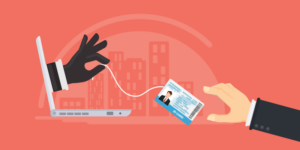 The short answer is
The short answer is  This blog was written by our community partner Michael Walther of
This blog was written by our community partner Michael Walther of  2. They have fiduciary advisors assisting them. Fiduciary advisors are required by law to put their clients’ interests ahead of their own. Insurance agents, stock brokers and others who may call themselves financial advisors, but who will not put their status as a fiduciary advisor in writing, should be approached with caution. These non-fiduciaries get compensated for selling products like insurance policies and annuities and have conflicts of interest that will likely harm your planning.
2. They have fiduciary advisors assisting them. Fiduciary advisors are required by law to put their clients’ interests ahead of their own. Insurance agents, stock brokers and others who may call themselves financial advisors, but who will not put their status as a fiduciary advisor in writing, should be approached with caution. These non-fiduciaries get compensated for selling products like insurance policies and annuities and have conflicts of interest that will likely harm your planning.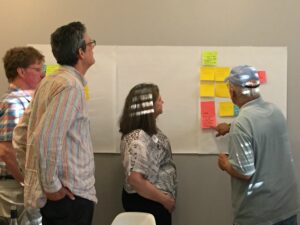 5. They communicate their future planning. There are two benefits to letting other family members know what planning is in place and what is contemplated for the future. This allows people to learn that they have been named to serve in some capacity in the future. This allows them to ask questions and understand what is expected and also to decline to serve if they do not believe they will be able to meet the expectations of the family.
5. They communicate their future planning. There are two benefits to letting other family members know what planning is in place and what is contemplated for the future. This allows people to learn that they have been named to serve in some capacity in the future. This allows them to ask questions and understand what is expected and also to decline to serve if they do not believe they will be able to meet the expectations of the family.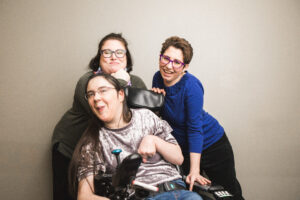 By learning that a future member of the planning team for a loved one is not interested in the role, the family has time to identify and implement other people for the needed roles. Communication also avoids unexpected generosity that negatively impacts the planning that is done. In summary, the more your extended family knows, the smoother the implementation of your planning will be.
By learning that a future member of the planning team for a loved one is not interested in the role, the family has time to identify and implement other people for the needed roles. Communication also avoids unexpected generosity that negatively impacts the planning that is done. In summary, the more your extended family knows, the smoother the implementation of your planning will be. For local Chicagoland folks, WBEZ wants to know what you care about. They’re asking listeners to share, “What do you want your Illinois elected officials to be talking about this election season?”
For local Chicagoland folks, WBEZ wants to know what you care about. They’re asking listeners to share, “What do you want your Illinois elected officials to be talking about this election season?” Other places to look for support in advocating for your needs include state chapters of national organizations like the
Other places to look for support in advocating for your needs include state chapters of national organizations like the  At the core of every successful political campaign is a corps of staffers. This is basically a well-oiled machine made up of both volunteers and paid individuals that, simply put, gets things done. Your
At the core of every successful political campaign is a corps of staffers. This is basically a well-oiled machine made up of both volunteers and paid individuals that, simply put, gets things done. Your 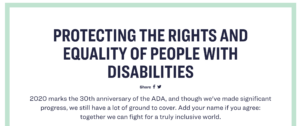 As a political candidate, you undoubtedly have a lot riding on your shoulders. In fact, you are essentially seeking to represent people who, like you, are constantly facing challenges because of complex policies surrounding disabilities. Running for office is a huge responsibility, which is why you also want to make sure that you are the best possible candidate for the job.
As a political candidate, you undoubtedly have a lot riding on your shoulders. In fact, you are essentially seeking to represent people who, like you, are constantly facing challenges because of complex policies surrounding disabilities. Running for office is a huge responsibility, which is why you also want to make sure that you are the best possible candidate for the job. I believe that societal change only comes when each person recognizes they have a role to play in making needed changes in our reality. Policies, regulations, and federal and state laws, though perhaps well intentioned, can be subverted and destructive when our citizens do not demand equal protection under the law for everyone.
I believe that societal change only comes when each person recognizes they have a role to play in making needed changes in our reality. Policies, regulations, and federal and state laws, though perhaps well intentioned, can be subverted and destructive when our citizens do not demand equal protection under the law for everyone. I believe that there are no spectators in the fight against racism. Either we are actively working to dismantle racism, or we are perpetuating it. In our work, we can make systemic change – eradicating racism in our educational institutions, health care systems, economic systems, housing systems, and justice system. Taking action means:
I believe that there are no spectators in the fight against racism. Either we are actively working to dismantle racism, or we are perpetuating it. In our work, we can make systemic change – eradicating racism in our educational institutions, health care systems, economic systems, housing systems, and justice system. Taking action means:
 My relationship with race and social justice issues is constant and it is personal. At work and at home, I continue to educate myself on others’ experiences while participating in active & progressive citizenship. Some of the ways I practice active citizenship include:
My relationship with race and social justice issues is constant and it is personal. At work and at home, I continue to educate myself on others’ experiences while participating in active & progressive citizenship. Some of the ways I practice active citizenship include:  My hope is that Independent Futures can someday provide equal opportunities for inclusion for all people with disabilities in Evanston. Unfortunately, Independent Futures’ supportive and effective programming is not affordable to many in our community.
My hope is that Independent Futures can someday provide equal opportunities for inclusion for all people with disabilities in Evanston. Unfortunately, Independent Futures’ supportive and effective programming is not affordable to many in our community.  At a most basic level, if we assume that we all have a social responsibility to one another, then our job as a society is to help one another. We must honor our social contract to access this greater good and it may require surrendering something for the greater good.
At a most basic level, if we assume that we all have a social responsibility to one another, then our job as a society is to help one another. We must honor our social contract to access this greater good and it may require surrendering something for the greater good. 
 One of our favorite tools is
One of our favorite tools is 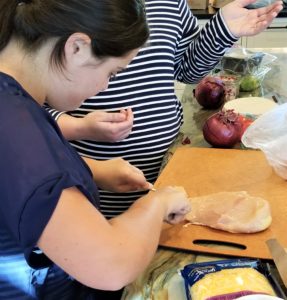 Because of our
Because of our  Another tutor, Cynthia Witherspoon, said, “During the first week Independent Futures instituted the work from home policy I met with the participants I tutor using texts, FaceTime, and phone calls.” However, as the governor modified the stay-at-home order, “I returned to meeting in person with most of my participants in their homes. We practice safe distancing and I always wear a mask. For those who have not felt comfortable returning to face to face meetings, I stay in touch with FaceTime or phone calls.”
Another tutor, Cynthia Witherspoon, said, “During the first week Independent Futures instituted the work from home policy I met with the participants I tutor using texts, FaceTime, and phone calls.” However, as the governor modified the stay-at-home order, “I returned to meeting in person with most of my participants in their homes. We practice safe distancing and I always wear a mask. For those who have not felt comfortable returning to face to face meetings, I stay in touch with FaceTime or phone calls.”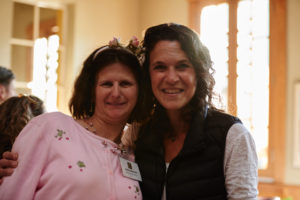 Working and tutoring remotely meant new challenges for tutors and participants. The first step was figuring out how sessions could continue. Dee Dee shared, “We have been very creative by using screen share, dictation, and new forms of learning to do daily tasks.”
Working and tutoring remotely meant new challenges for tutors and participants. The first step was figuring out how sessions could continue. Dee Dee shared, “We have been very creative by using screen share, dictation, and new forms of learning to do daily tasks.”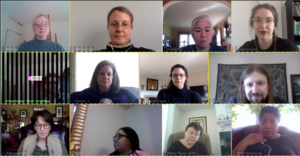 As we all adjusted slowly to the necessary COVID-19 precautions, our tutoring participants adjusted too. “At first, participants would tease me about wearing a mask and gloves, maintaining 6 feet of distance, and putting items on the ground,” Cynthia said. “Now everyone sees these as common practices, and they are respectful of the guidelines I follow. They know I am doing it to protect them.”
As we all adjusted slowly to the necessary COVID-19 precautions, our tutoring participants adjusted too. “At first, participants would tease me about wearing a mask and gloves, maintaining 6 feet of distance, and putting items on the ground,” Cynthia said. “Now everyone sees these as common practices, and they are respectful of the guidelines I follow. They know I am doing it to protect them.” 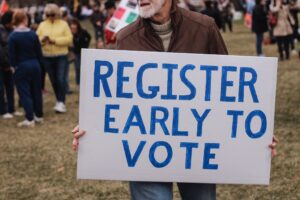 In Illinois, you can
In Illinois, you can 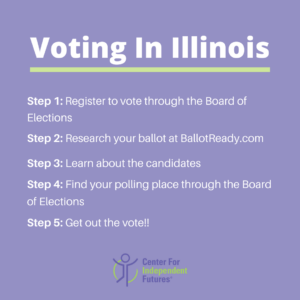 Illinois’ early voting period runs from March 2 – March 16. You can also vote on election day, March 17th from 6am – 7pm. Use the Board of Elections’ Voter Registration Lookup tool to find your polling location.
Illinois’ early voting period runs from March 2 – March 16. You can also vote on election day, March 17th from 6am – 7pm. Use the Board of Elections’ Voter Registration Lookup tool to find your polling location.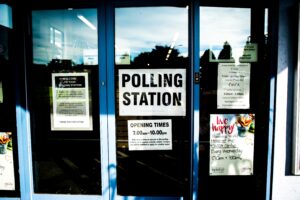 Now that you’re a registered, educated voter, what are the next steps you can take? This is the time to choose your candidates and then volunteer! You can call, text, or knock doors to spread the word about your favorite candidate.
Now that you’re a registered, educated voter, what are the next steps you can take? This is the time to choose your candidates and then volunteer! You can call, text, or knock doors to spread the word about your favorite candidate. 







